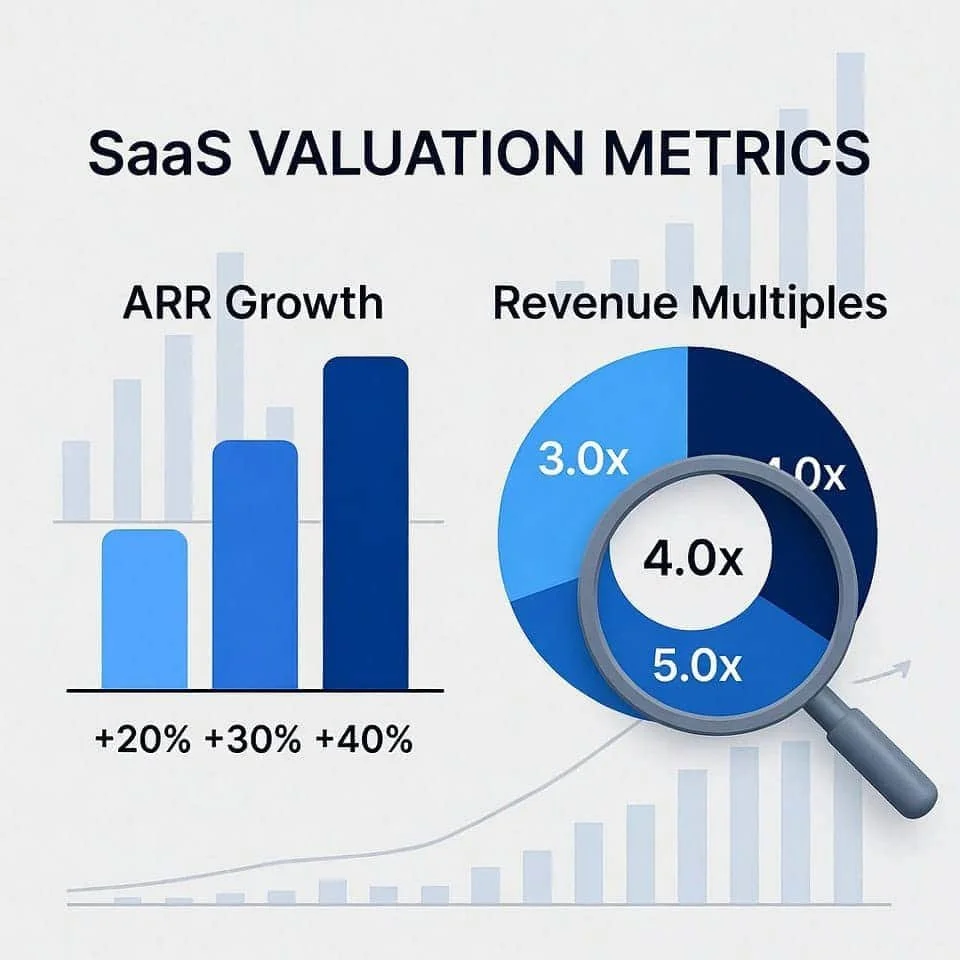5 Benefits of SPVs for Angel Investors
Special Purpose Vehicles (SPVs) simplify angel investing by pooling resources, reducing risks, and streamlining processes. Here's why they’re becoming a popular choice:
Risk Protection: Your personal assets are protected, as SPVs limit liability to your investment amount. Also, you have more weight on the cap table as part of a larger invested amount, often with major investor rights and protections.
Simplified Cap Tables: SPVs consolidate multiple investors into one cap table entry, making equity management easier for startups.
Access to Premium Deals: SPVs lower investment minimums, allowing participation in high-quality opportunities that might otherwise be out of reach.
Portfolio Diversification: With smaller commitments, you can invest in multiple startups across industries and stages.
Faster Funding: SPVs speed up investment processes, reducing administrative burdens for both investors and founders.
Quick Comparison
SPVs make angel investing more accessible, efficient, and secure, offering a practical way to participate in promising startups.
Benefits of SPVs and RUVs For Investors and Entrepreneurs
1. Risk Protection Through Liability Separation
Using an SPV (Special Purpose Vehicle) to invest offers a layer of protection for your personal assets. With its limited liability structure, your potential losses are capped at the amount you contribute to the SPV. Creditors cannot go after your personal assets - like your home or savings - because the SPV operates as a separate legal entity. Typically set up as an LLC or limited partnership, this structure creates a clear boundary between your personal wealth and any risks tied to the investment.
This kind of protection is especially useful when investing in early-stage tech companies, where regulations can change quickly and unpredictably. It also makes managing pooled investments and shared risks more efficient [3]. For angel investors, SPVs provide a "bankruptcy-remote" setup, keeping personal finances safe while allowing continued participation in startup funding rounds. This is particularly appealing for ventures navigating tricky regulatory environments.
Beyond risk protection, this separation simplifies many administrative tasks, which we’ll explore in the next section.
2. Easier Cap Table Management
Handling a cap table with dozens of individual angel investors can quickly turn into a logistical nightmare for startup founders. The paperwork piles up, and the complexity can feel overwhelming. That’s where SPVs (Special Purpose Vehicles) come to the rescue, consolidating multiple investors into a single entry on the startup’s cap table.
Instead of juggling 25 separate angel investors and cluttering your ownership records, an SPV simplifies everything by showing up as just one line item. This not only streamlines record-keeping but also makes equity management far more straightforward - especially when preparing for future funding rounds. As Ronald Rapberger, Regional Manager for DACH at SeedBlink, explains:
"Venture funds simply don't want to see 30, 40, or even 50 names cluttering it." [6]
Take the example of Valentin Lautier, founder of Homaio. In 2023, he used Roundtable to create an SPV and raised $100,000 from about 25 investors. Instead of managing 25 separate relationships and cap table entries, the SPV consolidated all those contributions into one, keeping his cap table clean and manageable [2].
The benefits go beyond just tidying up records. SPVs centralize investor communications and governance, saving founders valuable time. Instead of sending quarterly updates to dozens of individual investors, founders can communicate through the SPV’s lead investor or manager. This reduces the hassle of managing investor relations [5].
A clean cap table also sends a strong signal to future investors. Venture capitalists are more likely to be interested when they see an organized and professional ownership structure (i.e., resulting in a subsequent markup for your investment!). It reassures them that they won’t face complicated negotiations with a long list of small stakeholders during due diligence [5].
For angel investors, the advantages are just as clear. Allied Venture Partners, for example, uses SPVs to allow our global network of angels and VCs to participate in deals without creating unnecessary administrative burdens for startups. This setup not only saves founders time but also gives our investors a smoother, more efficient way to access promising opportunities.
Beyond simplifying cap tables, SPVs bring additional strategic benefits for both founders and investors.
3. Access to High-Quality Deals
SPVs (Special Purpose Vehicles) open the door for angel investors to participate in top-tier opportunities that usually require hefty individual commitments. By pooling resources, these investors can gain entry into deals that might otherwise be out of reach.
The numbers tell the story: according to PitchBook, SPV deals surged from 274 in 2022 to 769 in 2024. Even more compelling, over 35% of these deals in 2024 were at the seed stage. This shows how SPVs help investors bypass high minimum investment requirements, which often exclude individuals from sought-after opportunities. Instead of needing to commit large sums, SPVs allow participation with smaller amounts - sometimes as low as $1,000[8].
SPVs also offer a solution to the challenge of oversubscribed funding rounds. In cases where startups attract more investor interest than they can handle, emerging VC managers use SPVs to secure allocations and demonstrate their deal flow to potential limited partners (LPs). As Kirsten Morin from HighVista Strategies explains:
"If they have a really strong company, where there's strong investor demand for exposure...it's an easy way for a prospective LP to see exactly what they're buying into."
This approach allows SPV participants to access competitive deals that individual angels might otherwise miss.
Another key advantage is the enhanced quality of deal flow. SPVs led by experienced investors with strong networks provide participants with access to exclusive opportunities. These lead investors bring not only their expertise but also their industry connections, ensuring access to deals that might be unavailable to solo investors. For example, according to PitchBook, the median number of investors per SPV rose from eight in 2022 to nine in 2024, while the average climbed from 11 to 16.5.
A notable example occurred in 2023 when Companyon Ventures used a sidecar SPV to invest in RoadSync alongside Base10 Partners and HydePark Venture Partners. Without the SPV, Companyon's investment would have been insufficient, and RoadSync might have turned to a larger fund instead[9].
At Allied VC, SPVs significantly benefit from our broad network of investors. With thousands of angels and VCs in our network, we provide streamlined access to pre-Seed, Seed, and Series A opportunities across North America. This SPV structure not only democratizes access to the venture capital asset class by allowing smaller investors to participate, but it also simplifies cap table management for our portfolio companies.
The financial impact of SPVs is undeniable. In 2024, Sydecar SPVs raised a total of $476.3 million - more than double the $231.1 million raised in 2023. This growth highlights the increasing adoption of SPVs and the scale of opportunities they make accessible.
4. Better Portfolio Diversification
SPVs (Special Purpose Vehicles) are changing the game for angel investors by making it easier to build diversified portfolios. How? By lowering the entry costs for multiple investments. Instead of pouring large amounts of money into one deal, investors can allocate smaller amounts across several opportunities, creating a more balanced and risk-adjusted investment strategy.
For instance, an SPV might reduce a typical $100,000 minimum investment to just $10,000. This means investors can participate in 10 deals instead of committing all their capital to one.
"Angels working together to invest through an SPV may have access to a wider variety of investment opportunities - across different stages and industries - than if they were investing on an individual basis", says Josephine Koh, Director of Investor Services for Asia Pacific & Middle East at Carta [1].
This approach opens the door to niche markets and emerging sectors without requiring hefty capital commitments [11]. By joining multiple SPVs, investors can spread their exposure across industries, regions, and growth stages, minimizing the risks tied to any single investment. If one deal underperforms, the impact is softened because the capital is distributed across a broader portfolio.
At Allied, this is central to our diversification strategy. Our global angel and VC network utilizes our SPVs to access pre-Seed, Seed, and Series A opportunities they would otherwise miss. With smaller individual commitments, investors can build a robust portfolio without the typical high capital requirements of direct investing.
Regulations also support this diversified model. For SPVs raising $12 million or less, the SEC allows up to 250 accredited investors. For those raising more than $12 million, up to 100 investors can participate [7]. This flexibility makes it easier to diversify within a single SPV and across multiple vehicles.
Unlike traditional VC funds, where investors have little control over which startups receive funding, SPVs offer a tailored approach. Investors can choose specific companies to back while still enjoying the benefits of diversification by participating in multiple SPVs [7].
5. Faster and More Efficient Funding
SPVs have transformed the investment process for angel investors, turning what was once a complicated, multi-step ordeal into a streamlined, straightforward transaction. Instead of startups negotiating separately with dozens of angel investors - each requiring its own legal agreements, due diligence, and cap table updates - SPVs consolidate these steps into a single process. This not only simplifies investor onboarding but also significantly reduces the administrative burden for founders.
Here’s a key advantage: experienced SPV organizers can deploy capital in about 35 days [12]. Compare that to traditional angel rounds, which often drag on for months. This speed comes from SPVs’ ability to centralize paperwork and administrative tasks, allowing both founders and investors to focus on what matters most - making smart investment decisions [15].
SPVs also have fewer compliance requirements and simpler legal structures compared to traditional investment vehicles [4]. This means less paperwork and faster decision-making, freeing up founders to concentrate on growing their business rather than being bogged down in bureaucracy.
Another perk? SPVs are quicker to set up and raise capital compared to traditional venture capital funds [1]. For angel investors, this translates into faster access to promising deals and the ability to act decisively in competitive funding environments [14]. This speed not only cuts transaction costs but also gives investors a leg up in fast-moving funding rounds. When a promising startup is raising capital, SPVs let investors pool their resources and commit quickly, avoiding delays and reducing administrative complexity.
At Allied Venture Partners, we take full advantage of this efficiency to deliver funding to new portfolio companies in as little as four weeks. In today’s fast-paced startup world, where closing a funding round quickly can be just as critical as the terms of the deal, this speed is a game-changer.
The numbers back it up: in Q4 2024, the annual count of new SPVs on Carta had jumped 116% compared to five years earlier [1]. This surge highlights SPVs as a faster, more streamlined option for angel investing [1].
Comparison Table
When weighing SPV investments against direct investments, knowing the differences can help refine your angel investing approach. Here’s a breakdown of how these two methods compare across key factors:
These differences show why SPVs have become a preferred option for many investors. They simplify the process by consolidating multiple investments into a single cap table entry [2], reduce liability exposure, and allow participation in premium deals with smaller contributions [7]. It's no surprise that SPV adoption surged by 116% in Q4 2024, reflecting their growing popularity [1].
Conclusion
SPVs are reshaping the way angel investors approach early-stage investing by offering a more straightforward and accessible route to promising opportunities. They’ve seen a surge in popularity, and it’s easy to see why [1].
By addressing traditional hurdles like complex agreements and high minimum investments, SPVs make it easier to participate in well-vetted opportunities alongside experienced investors. They also allow for building diversified portfolios with lower investment thresholds, faster funding timelines, and more weight on the cap table for participating investors.
On top of that, SPVs simplify administrative tasks. From streamlined cap table management to more efficient governance and decision-making, these structures bring a level of operational ease that benefits all stakeholders involved.
Whether you’re an experienced investor looking to simplify your strategy or someone new to venture investing, SPVs provide a balanced approach. They blend the control of direct investments with the shared risk and flexibility of pooled capital, offering a practical and appealing option for today’s angel investors.
FAQs
How do SPVs help protect angel investors from financial risk?
Special Purpose Vehicles (SPVs) provide angel investors with a layer of risk protection by creating a separate legal entity for their investments. Essentially, when you invest through an SPV, your financial liability is capped at the amount you contribute. This means if one investment doesn't pan out, your other assets and investments remain unaffected.
Another advantage of SPVs is their ability to bring investors together to pool their resources. This collective approach opens doors to larger investment opportunities and helps spread risk across multiple startups. By enabling a more diversified portfolio, SPVs reduce the financial blow if one company underperforms. This combination of simplicity and risk management makes SPVs a smart way to build a well-rounded venture portfolio.
What are the benefits of using SPVs to manage startup cap tables?
Using Special Purpose Vehicles (SPVs) can be a game-changer when it comes to managing startup cap tables. By grouping multiple investors into a single entry, SPVs significantly simplify cap table management. This not only reduces administrative headaches but also keeps things tidy for future funding rounds. A clean and well-organized cap table is something venture capitalists and other potential investors find particularly attractive.
Another advantage of SPVs is how they allow investors to share risk. By pooling their resources, investors can contribute smaller individual amounts while still accessing larger investment opportunities that might otherwise be out of reach. They can also benefit from major investor rights and protections as if they had written a larger check. For startups, this means they can bring in a more diverse group of investors without cluttering their cap table, making the entire process smoother and more efficient.
How do SPVs help angel investors access exclusive investment opportunities?
Special Purpose Vehicles (SPVs) offer angel investors a way to pool their funds with others, granting access to investment opportunities that might otherwise be out of reach for individuals. By combining smaller contributions into a single entity, SPVs make it possible to participate in high-value deals that are often exclusive to institutional investors or those with considerable capital and networks.
This setup not only makes the investment process more straightforward but also helps spread out risk. Any potential losses are confined to the SPV itself, shielding the rest of the investor's portfolio. SPVs provide a practical and efficient way for angel investors to back promising startups while keeping risks and complexities in check.





